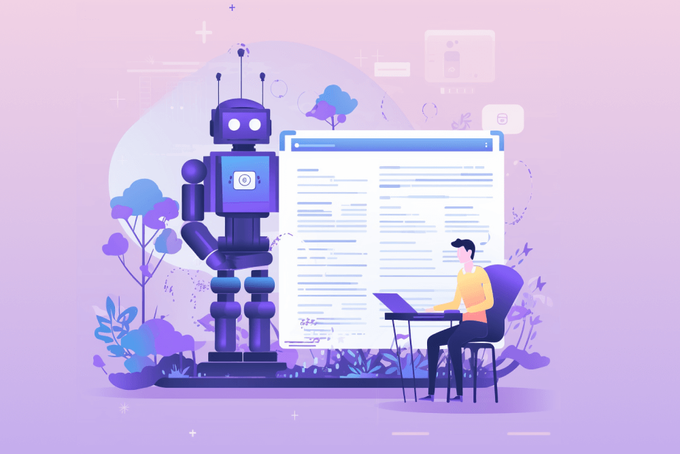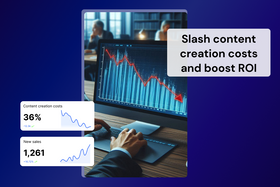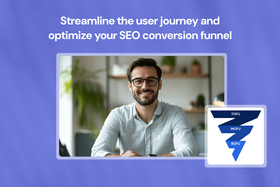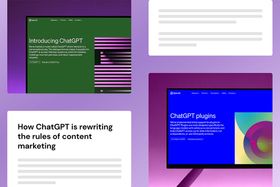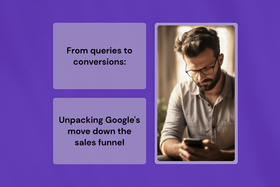Reshaping the web: How will Google handle the AI content surge?
Published June 12, 2024
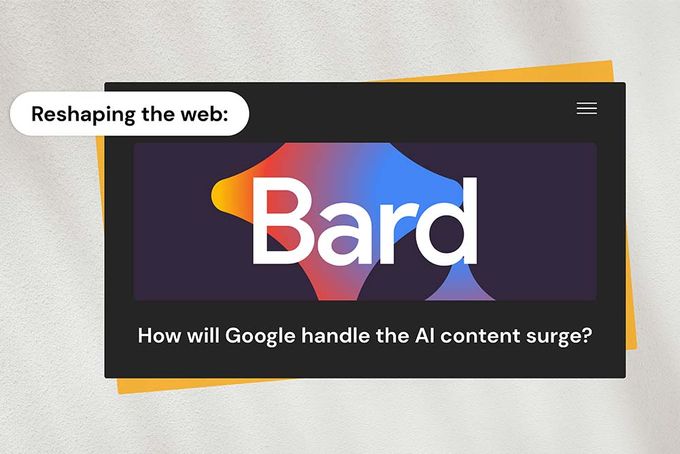
AI Summary
Key takeaways
- AI-generated content could lead to content hyperinflation.
- Google values helpful content that provides unique, valuable perspectives.
- Google's selective indexing is set to intensify due to content hyperinflation.
- Content involving opinions, news, and personal experiences are less replicable by AI.
- Google is expected to prioritize high-value content and websites as content hyperinflation grows.
With the rise of AI language models like ChatGPT, content creation has become almost free, leading to an unprecedented surge in the amount of content available. However, this 'content hyperinflation' is not entirely new.
Recognizing user behavior on search engines, companies have long used content marketing strategies to bolster their websites, which increased the amount of online content. Even before AI, over 7 million articles were published daily.
Through this, we’ve already seen how Google has handled content inflation so far. And this gives us a good idea of how Google might handle the even bigger wave of content that AI is about to bring.
Entering the age of content hyperinflation
With AI's involvement, we are headed towards a state of content hyperinflation—a vast amount of content produced at a nearly limitless scale—which could cause the value of content to plummet. A lot of this drop could come from too much content that's uninteresting or not helpful.
This raises two pressing questions:
How will Google handle this? And what are the implications for marketers?
» Learn what type of content is still relevant for your site in the age of AI.
The invaluable role of helpful content
Much like unchecked money printing can lead to inflation, the overproduction of content can devalue its worth. We are on a quest for 'content gold'—high-quality content AI can't generate.
Google's algorithm undergoes changes on a daily basis, making it difficult to keep track. However, one fundamental principle remains unchanged: Google's commitment to delivering the best search results for each user. This dedication is what generates Google's strong user retention.
If the Google search results provided aren't the best, users will probably turn to other search engines.
How does Google define the best search result?
Google uses thousands of indicators, and tracking all of them would essentially require replicating Google itself. However, they’ve provided a high-level guiding principle for content creation: it must be helpful. This pretty much covers everything good content should be.
So, how can you tell if your content is really helpful? It's got to bring something new to the table—unique insights, valuable info, and interesting perspectives.
The aim is not just to generate helpful content but also to produce something better than AI can.
» Discover how ChatGPT is rewriting the rules of content marketing.
Google’s selective indexing process
Google Search Console’s "Discovered - currently not indexed" status has perplexed marketers and SEO professionals for years. Numerous pages fall into this category without explanation or potential remedies.
We can figure out Google's existing strategy for handling content hyperinflation by reading between the lines. Tasked with the enormous job of crawling and indexing billions of pages, Google is selective and doesn't see all pages as valuable or informative. In some instances, Google even chooses not to crawl or index certain pages at all.
With the content hyperinflation we're experiencing, there's an enormous amount of content that offers similar value. Google will have little incentive to index such content. In fact, there will be more compelling reasons not to do so, considering the substantial storage and computing power required.
Is your site’s content still valuable if AI can write it?
If AI models like Bing or Bard (now Gemini) can answer a question well, there's little value in publishing similar AI-generated responses on your site. This approach reflects outdated thinking. As such, producing content that AI cannot generate remains essential for your site.
To determine the type of content relevant to your site, it’s important to understand the different types of queries and content.
Query types
In 2022 alone, Google made a whopping $280 billion in revenue, with $162 billion of that coming just from search engine marketing, including platforms like Google AdWords. This income largely stems from transactional and commercial searches.
Search queries vary in type. For instance, some searches pertain to specific brands, products, places, or individuals. These searches are not easily replaced by content.
Most AI-generated content falls under the categories of information or entertainment. The focus here is on searches where people want information and the kind of content that matches these queries.
Content types
Searches and content vary in nature. AI can easily generate some types of content, such as instructions for writing a specific formula in Google Sheets.
In such cases, an interactive AI may offer a superior user experience because of its adaptability and interactive nature. Creating such content may be less efficient, considering AI can provide a more effective solution.
AI falls short in generating certain types of content that include opinions, news, in-depth insights, and personal experiences.
These areas demand deep expertise, exclusive information, or unique personal experiences beyond the current capabilities of AI. Therefore, you can still add value by creating content in these domains.
Content such as creating videos for social media offers a personal experience that might be difficult for AI to mimic. This content then remains invaluable to your brand.
» Explore whether AI will really reduce content costs.
Google will always prioritize high-quality content
As we head into the era of content hyperinflation, we think Google will start zeroing in more on high-quality content and websites exclusively. A website with high-quality content has a better shot at being indexed. On the other hand, websites that don't measure up might end up being overlooked by Google's indexing process.
The fight will only get more severe. Content hyperinflation will push Google to exclude more pages from its index. Google is also likely to allocate fewer resources to crawl and index low-quality content or sites, and focus more on sites that really deliver value.



